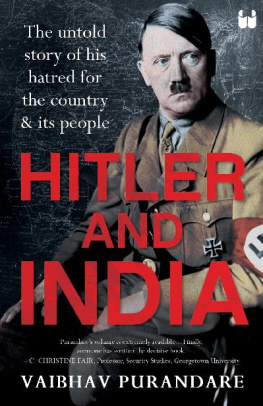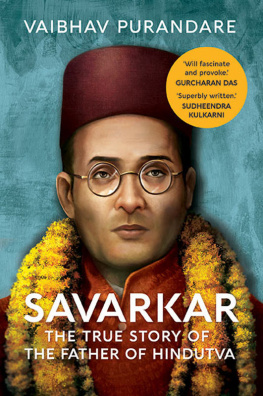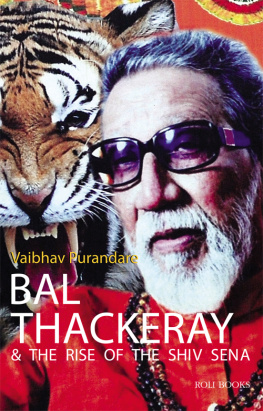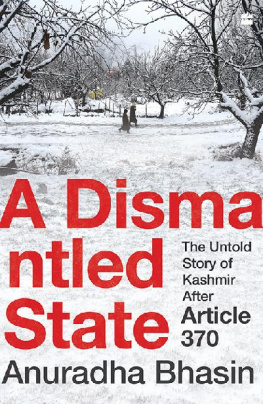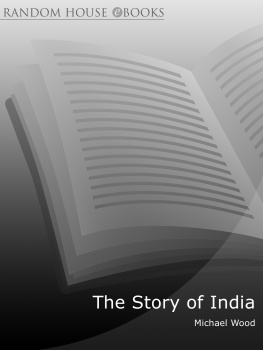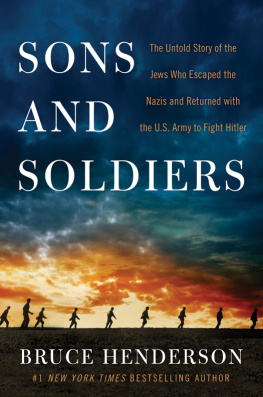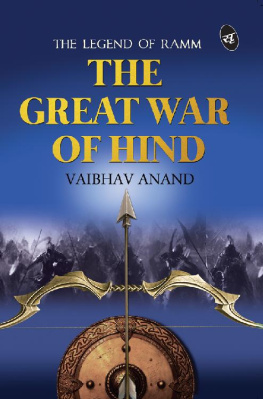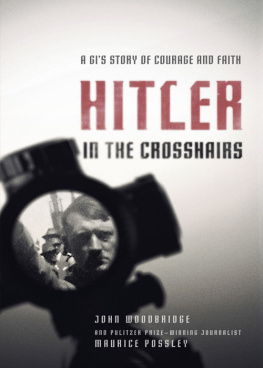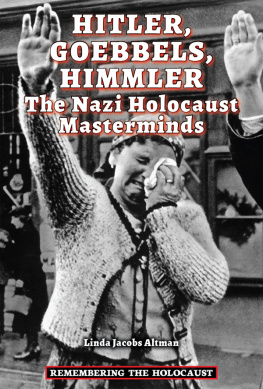HITLER
AND
INDIA
Vaibhav Purandare is the author of Savarkar: The True Story of the Father of Hindutva , Bal Thackeray and the Rise of the Shiv Sena and Sachin Tendulkar: A Definitive Biography . He works as a senior editor with The Times of India .
Praise for the book
For too long, too many Indians have laboured under the delusion that Hitler not only supported Indias independence but that he hastened it. How this belief perdures is odd given the vast statements and writings of Hitler in which he said plainly that Britain is entitled to the Raj based upon its power, fortified by its undiluted Anglo-Saxon heritage. In fact, Hitler wanted to make Russia his India. Finally, someone has written the decisive book that will put these canards to rest. Vaibhav Purandare has conducted painstaking archival research to unearth some of the most bizarrely fatuous efforts of Indians in the independence movement to curry favour with Hitler who, on most occasions, were rudely rebuffed as were the myriad requests that Hitler remove deeply offensive statements about India in Mein Kampf . Purandare also presents statements of Indian luminaries who exposited their affection for fascists without clue or irony. Their flirtations with mass murderers should prompt a revisiting of the esteem they enjoy. Purandares volume is extremely readable with his deep appreciation for the absurd and jocose turn of phrase. At times, I found myself guffawing out loud. Get this book for every known or suspected Hitler enthusiast as well as for the historical ignoramuses in your midst.
C. Christine Fair, Professor, Security Studies, Georgetown University, Washington, DC
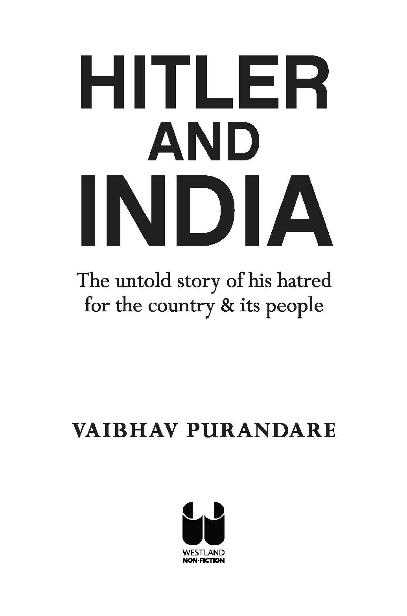
First published by Westland Non-Fiction, an imprint of Westland Publications Private Limited, in 2021
1st Floor, A Block, East Wing, Plot No. 40, SP Infocity, Dr MGR Salai, Perungudi, Kandanchavadi, Chennai 600096
Westland, the Westland logo, Westland Non-Fiction and the Westland Non-Fiction logo are the trademarks of Westland Publications Private Limited, or its affiliates.
Copyright Vaibhav Purandare, 2021
ISBN: 9789390679997
The views and opinions expressed in this work are the authors own and the facts are as reported by him, and the publisher is in no way liable for the same.
All rights reserved
No part of this book may be reproduced, or stored in a retrieval system, or transmitted in any form or by any means, electronic, mechanical, photocopying, recording, or otherwise, without express written permission of the publisher.
For Baba and Mom
Jagdish Purandare
and
Jyotsna Purandare
CONTENTS
W ell, well heres something, I said to myself.
The year was 2011. I was reading Mein Kampf , the autobiography of Adolf Hitler, and a particular passage in the text had piqued my curiosity. It was about India.
I was aware that Hitlers autobiography was one of the perennial bestsellers in India, and almost every bookstore in the country, big or small, famous or unnamed, why, even the fancied and unfancied streetside bookstalls, had a copy, more often than not prominently displayed.
Do the extraordinary number of the books buyers know what Hitler had said in it about India? I wondered as I slammed its pages shut. When I asked around, I realised most of them didnt. At the same time, I thought, have I seen all I need to see, or is there much more to it?
This spurred a search in the archives, German, Indian and global, and the discoveries were startling. Equally startling was the truth that Hitlers view of India was a completely forgotten chapter of Indias history. That was odd, given that history was more and more a contested subject in India, much as in the rest of the world. Indians born decades after Independence were increasingly becoming aware of Winston Churchills opinions about their country and its people, but Hitler? The question more or less drew a blank. There was a gigantic gap there.
What was Hitlers outlook towards India and its people? How did he see their struggle for freedom from the British Raj? How did he perceive British rule itself in relation to India and the rest of the world? Did he have opinions on Indian history, culture and civilisation, on Indian traditions, and on the direction the country would eventually take? And had he voiced them anywhere, in public or in private? If he had, had they resulted in any consequences during his life and times?
Considering how devastatingly consequential a role Hitler played in modern history, these questions were vital. Addressing them would contribute to a fresh assessment of the German dictator, an assessment we must make of all important historical figures, good or bad, from time to time. Such an assessment would be of particular value if it were not West-focused, but from the East, and from a place other than Japan (a key Axis force in the Second World War) in the East.
As far as India was concerned, a genuinely close examination was even more critical on account of the consistently high sales of Mein Kampf , the casual manner in which the name Hitler was thrown about on the subcontinent, either by way of criticism or, in some cases, even praise, and the notion that several Indians still seemed to harbour in the twenty-first centurythat the German Fhrer was a friend of the Indian people and had extended wholehearted support to their demand for political liberty.
What made the gap truly extraordinary was that it existed despite the fact that works on Hitler and the Nazis would fill up more libraries in the world than most other subjects. There are volumes written about him, the Third Reich and the Second World War, but theres almost next to nothing on the subject on hand.
This book, dear reader, is an effort to fill that gap.
T he knock on the door was loud and startled A.C.N. Nambiar, who was reading his newspaper. In a moment, it turned into the thudding sound of a powerful shoulder forcing itself against the door.
It was 7 p.m. on 27 February 1933. Nambiar, an Indian journalist and anti-colonial agitator, was seated on his desk in the front room at his flat in central Berlin. The front page of the evening paper, spread out in front, had him fully engrossed. The Reichstag or German Parliament had gone up in flames the previous night. The blaze had run through the main chambers, where the peoples representatives sat, and leapt up through the buildings gilded cupola, destroying it completely.
Adolf Hitler, sworn in as Chancellor of Germany barely four weeks ago, had launched a crackdown against opponents of his Nazi Party even before the fire had been fully extinguished. He had roped in his partys strong-arm unit, the Stormtroopers ( Sturmabteilung ) or SA, for this purpose. The SA had just been formally appointed as auxiliaries to support the police force.
A twenty-four-year-old Dutch worker with communist leanings, Martinus van der Lubbe, had been arrested from a corridor near the burning chambers and had apparently confessed to the crime. A whole lot of communists were rounded up as a consequence, but so were many others believed to be antagonistic to the Naziswriters, journalists, artists, lawyers, pacifists and members of the clergy. The Nazis hated communism, which they saw as a distasteful force propelling their principal enemy, the Jewish community. At the same time, anyone and everyone deemed anti-national was being picked up indiscriminately.



